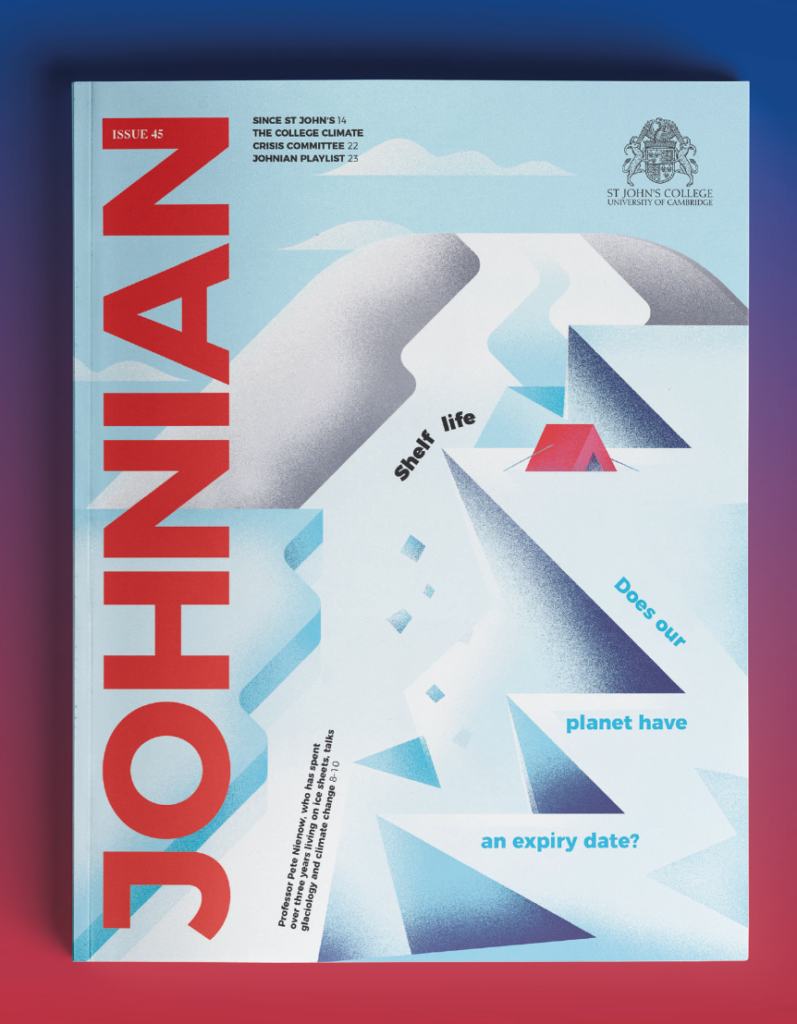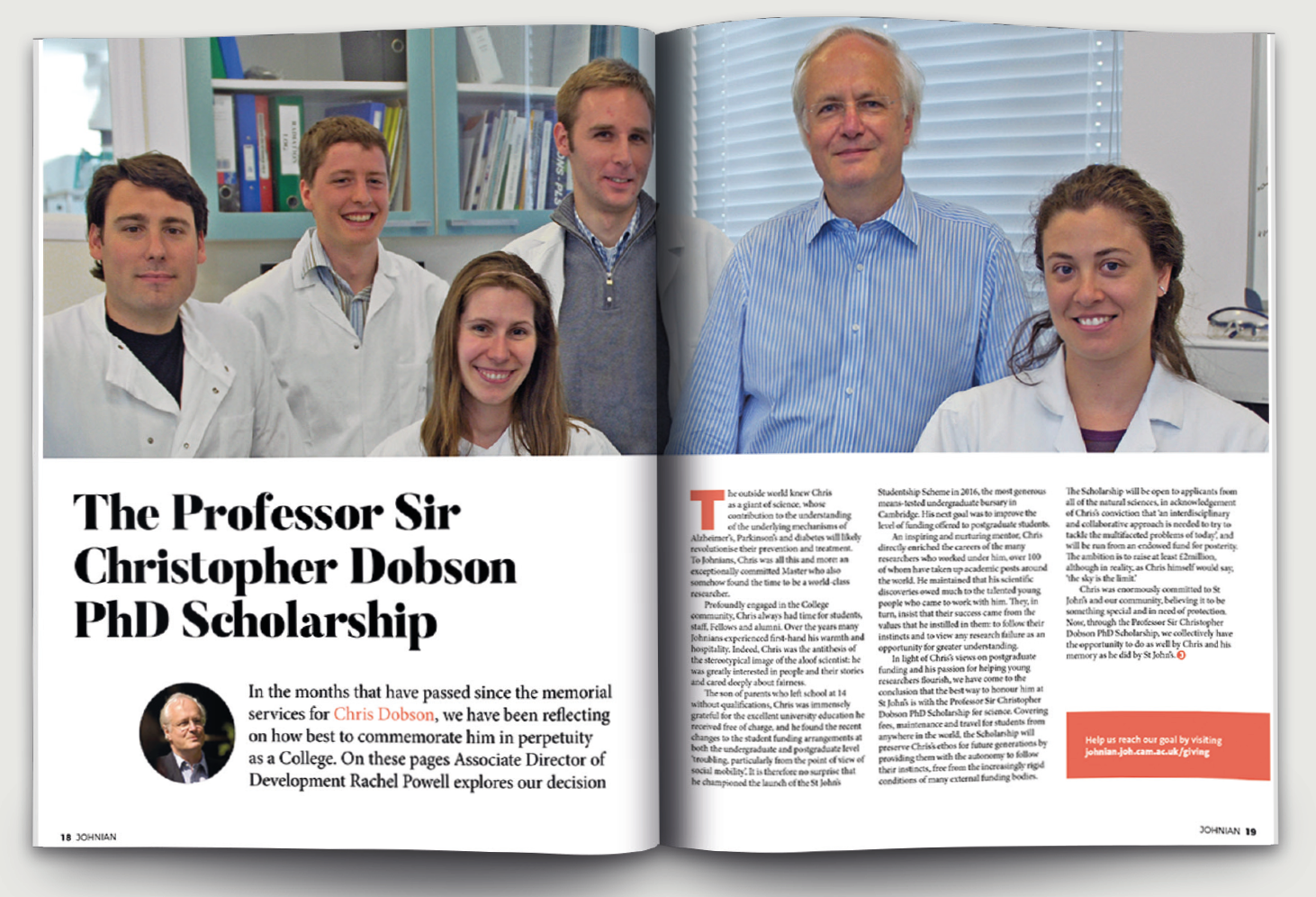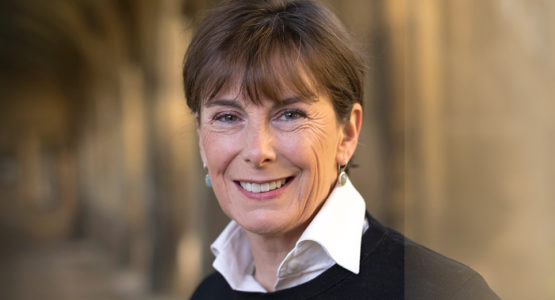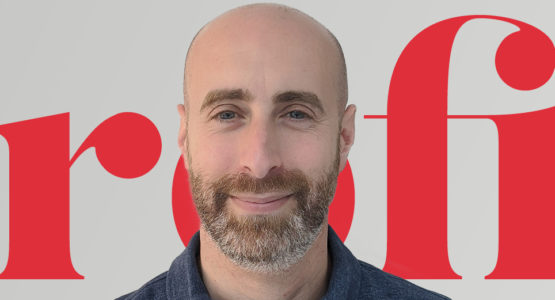More adventures in the land of ice and fire
In response to the Iceland expedition and glaciology article in Johnian issue 45.
I was involved in a Johnian-inspired expedition to Myrdalsjokull in Iceland in 1975, with Chris Rowley (1970) and Bill Adams, and the landscape was truly awesome: cold, wet and demanding. Like the party of the 1953 Langjokull Expedition, we used ‘laborious’ plane table surveys to map peri glacial features, but our focus was a feasibility study on using satellite photography in glaciology – a precursor to the vital work reported by Pete Nienow.
Our expedition leader was Richard Crabtree (1971), who subsequently returned to Iceland many times. Sadly, Richard died in 2014, but his support for young explorers is continued through The RDC Foundation.
Simon Swaffield (1971)

I found the spring 2020 issue of Johnian fascinating. I read geography at John’s, chose glaciology for part II and knew Martin Sharp (referenced by Pete Nienow), who was at Jesus College. I went on four expeditions to Norwegian glaciers with the Brathay exploration group between 1975 and 1979, and glaciology came alive with David Drewry’s teaching at the Scott Polar Research Institute and my experiences in Norway.
My late father George (1939), also a Johnian, was a member of the Cambridge University Austerdalsbre expedition in 1955, which John Mounsey mentions in the previous magazine.
I have been fortunate to live at most five miles from work and have cycled to work for most of the last 40 years (three employers and seven locations), though I am working from home at present.
John de Boer (1976)
A modified mindset
In response to the environmental theme of Johnian issue 45.
I was delighted, as ever, to receive my Johnian magazine, with such a strong emphasis on the environment. When I arrived to work in the opera here in Germany in 1980 I had never given a thought to environmental concerns, but was quickly made aware of these issues.
Despite such a strong green movement here, one despairs that there is still no speed limit on our motorways, that our air travel is so cheap, and that our trains are so expensive.
It’s easy to think ‘what’s the point’ when comparing the small reductions in waste we make (reuse of plastic bags etc) with the much larger-scale examples of waste we see around us. However, I do believe that a new mindset and an awareness even of small changes can be of benefit.
Granville Walker (1968)
Pressures of population growth
In response to the environmental theme of Johnian issue 45.
In an issue devoted largely to climate change, it was depressing that none of the contributors even alluded to a key driver, namely human population growth.
If the College is serious about making a big difference, I challenge the new Climate Crisis Committee to acknowledge this major contributing factor and push for policies to make a real impact on it. For instance, how about no longer offering employment or honours to anyone with more than two children? I can already hear anguished squeals about human rights, but do those include a right to trash our planet?
Serious crises demand exceptional measures and uncomfortable choices. After all, who would have thought that COVID-19 would be used to justify suspending our cherished freedoms of association? There’s an opportunity here for St John’s to set a trend which might go viral. As Lady Margaret had only one child, we might have her blessing!
Bill Ball (1963)
In response to Bill Ball’s letter above.
I sympathise with the view that population is a not-often discussed element of the climate emergency, and it would be good if it were discussed more. But in the developed world the population is growing fairly slowly – indeed, in some countries births are currently below replacement rate.
More evidently detrimental to the planet is the determination in the developed world to continue with our current lifestyle, and the aspiration of businesses and politicians to spread this lifestyle to all parts of the globe – including the less developed world, where population growth continues rapidly.
Rather than reconsidering or changing employment practices in College, then, it would be most effective for the College Climate Crisis Committee, and for everyone individually, to support female education around the globe (including education in reproductive health) and to think realistically about a ‘contract and converge’ model, where we curb the wastefulness of our own lifestyles and encourage sustainable improvements in the developing world.
Jane Heal (1964), Fellow of St John’s

The Professor Sir Christopher Dobson PhD Scholarships
In response to the Dobson PhD Scholarships feature in Johnian issue 45.
Although I only chatted with Professor Sir Christopher Dobson a few times, I was greatly impressed by his kind-heartedness, even over his brilliance. Here was a man who embodied all that Johnians should strive to be: knowledge-seeking, well-rounded, and above all empathetic.
The new Scholarship is a wonderful initiative. It is a moving thought that future Scholars will make scientific advances in his name, walk through the same courts, and dine in the same hall. My husband and I could only make a small donation at this time, but we are humbled to support such a fitting tribute.
Helen Alderson-Lorey (2015)
During my time as an undergraduate at St John’s, Professor Sir Christopher Dobson was a truly inspirational Master. He was a beacon of scientific leadership and made everyone at the College feel welcome and part of a very special community.
Having been fortunate enough to receive the Nathoo Bursary, I am grateful to be able to give back now, at least a little bit, and to contribute to marking Chris’s legacy while also making it possible for a fellow PhD student to pursue their research in this superb environment.
Anastasia Ershova (2015)
Express your thoughts on this issue, tell us about your latest projects or
share anything else the Johnian community may like to know about.
You can email your letters to development@joh.cam.ac.uk with the subject
‘Johnian letter’. Letters may be edited for length and are published at the
discretion of the Editor.





